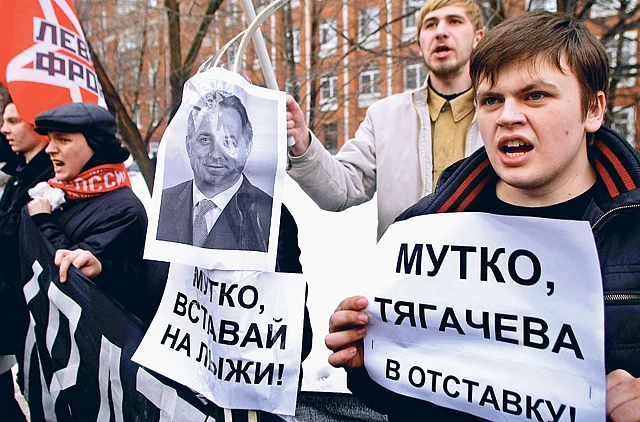Russia is in a funk. Its performance at the Winter Olympics in Vancouver was its worst ever, and its economy suffered more last year than any other nation in the Group of 20.
This is no coincidence, as the old Communist newspaper Pravda used to say. State companies control much of the economy, a single party rules the airwaves, and an overbearing, corrupt bureaucracy twists laws and stifles initiative.
None of this is good for business and, as it turns out, it isn't good for sport. If Russia wants to go for gold, it will have to shed a system that operates from the top down.
Stuck in the past
Yet for some reason, Russia's leaders are still stuck in the past. The reaction to the dismal showing at the Olympics was typical: President Dmitry Medvedev has called for the heads of the country's top sports officials — as if a purge would make any difference to the performance of Russian hockey stars.
Another sample of retrograde thinking is written all over Russia's plan to create its own Silicon Valley, a project headed by Vladislav Surkov, the Kremlin's top strategist. As he made clear in a February 15 interview, Surkov finds the best way to generate innovation and spur the modernisation of Russia's lagging economy — which he compares to an old armoured railroad car without an engine — is to deploy "consolidated power", or if you will, "authoritarian modernisation".
Talk about a contradiction in terms. You don't have to be a die-hard free-market capitalist to doubt whether "authoritarian modernisation" will produce the creative talent and risk-taking entrepreneurship that led to the boom in Silicon Valley.
Russia has reason to worry about its competitiveness, as a sports power and as an economy. Surkov said as much when he called the country a "vacuum" caught between Asia, Europe and the US "If we are not able to increase incomes, people will start to be listless and disillusioned," he said.
This kind of disillusionment has already set in and it is sapping Russia's performance — on the ice rink, on the slopes and in the real economy — everywhere outside oil, gas and other areas dominated by government bureaucrats and their oligarch buddies.
Like many other Russians, Aleksei Pushkov, a television commentator, saw the country's poor showing in Vancouver — with only three gold medals — as an alarm bell. "It is a signal that we are creating a country and a society devoid of motivation," he said on February 27.
For some, the news is that people like Surkov and Pushkov are now admitting that Russia is at a standstill, 10 years after Vladimir Putin, now prime minister, took office as president and started to build his famous "vertical power" structure.
Sign up for the Daily Briefing
Get the latest news and updates straight to your inbox
Network Links
GN StoreDownload our app
© Al Nisr Publishing LLC 2026. All rights reserved.
